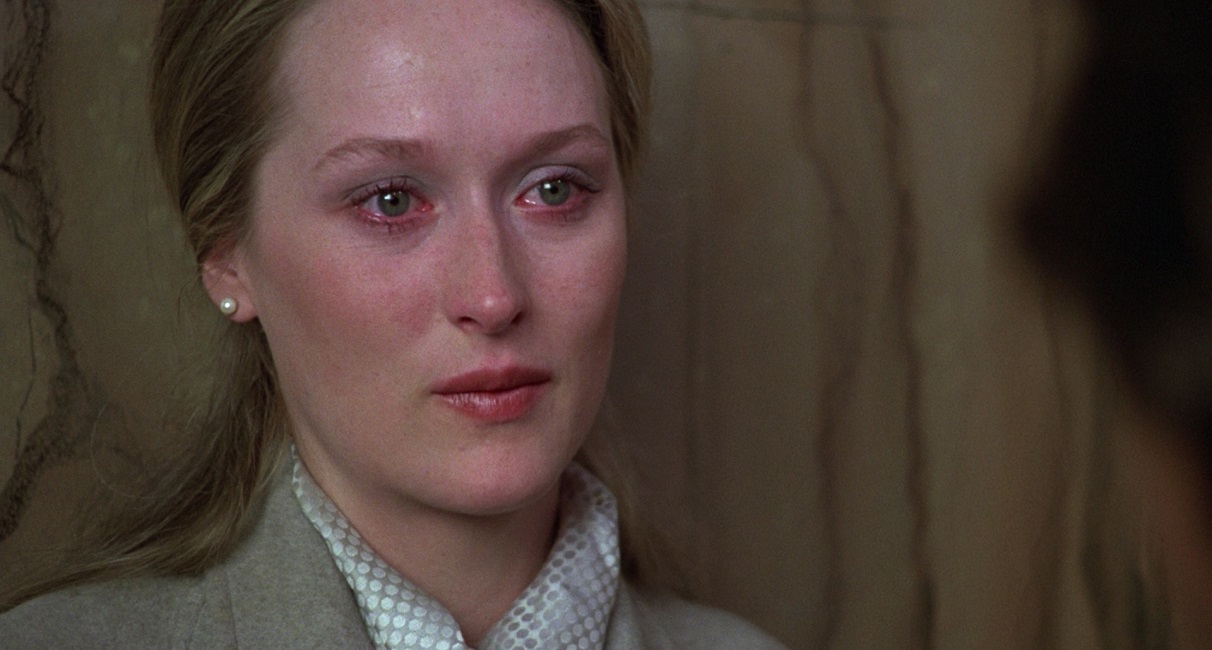Reviews of Classic Movies: ‘Kramer vs. Kramer’ may still have a case to make
Dustin Hoffman and Meryl Streep in Kramer vs Kramer, directed by Robert Benton.
If you’re one of the people who thinks 2018 was the worst year ever, perhaps you just need something to help you realize how far we’ve come. Here’s what you do: find a movie that was a major critical and commercial success a few decades ago. Does it depict what average people were going through at the time? If so, what does it have to say about it? You might be surprised to see what society’s biggest problems were; they might be the kind of thing we’d never dream of focusing a movie on these days. In this light, a tough year like 2018 might be seen just as much for how far we’ve come as for the stuff we’re still fighting.
An ideal example is Robert Benton’s 1979 film Kramer vs. Kramer. Cast in a 2018 light, the plot of the movie sounds like a detail you could fit in a line of dialogue nowadays: Joanna Kramer (Meryl Streep) is a former artist who has tried to cram herself into the role of a housewife to Ted (Dustin Hoffman), an overworked creative director for an ad agency. They have a young son named Billy (Justin Henry) who Joanna adores. But as the film begins, Joanna decides that she can’t continue to be someone she’s not, and walks out of the family, leaving Ted as a single parent.
Child actors can be insufferable, but Justin Henry does great work as Billy.
What ensues is Ted and Billy learning to live together, without Joanna to fill the role of a “traditional” American woman. Ted must learn what household products to buy, how to fix meals, and how to show interest in his son, even with the pressures of his job crushing him. And while we don’t get quite as much of a picture of Billy’s mind, he has some growing up to do as well: he tests his father’s rules and commitment to discipline, and wonders whether he was responsible for his mother leaving them.
As Roger Ebert pointed out during the movie’s original release, one of the key aspects of the film is how it doesn’t pick sides. Ted may be the main character, but we’re encouraged to observe how his behaviour ruined his marriage and distanced himself from his son. Joanna’s behaviour, while rash, was something she had to do for herself, to stop herself from spiralling into self-destruction. Both are guilty of self-interest, but both also demonstrate great parenting, albeit in different circumstances. As if to take some pressure off the audience to choose the more virtuous Kramer, the film transforms the abstract to the practical: a courtroom decision on custody of Billy. But when the verdict is revealed, the movie wants us to know that even that can be reinterpreted.
Placed in historical context, this egalitarian approach deepens the impact even more. It’s fascinating to listen to Ted’s boss (George Coe) accuse Ted of letting his family distract from his job, a scene eerily reminiscent of the language used today to keep women from receiving pay equity or positions of power. The film proves how much of a mind warp that gender politics can be; an argument that advances work over family is twisted and re-used to harm people regardless of gender, across whole generations. Ultimately, what’s really on trial isn’t the Kramers’ parenting, but the role of work in American life and how it affects men and women differently, both in terms of personal fulfillment and opportunities.
Streep won her first of three Oscars for her work in the film.
Kramer vs. Kramer isn’t a show-off sort of movie. The camera work is careful and precise, designed to let the performances shine. Perhaps the most energetic shot is one that tracks Ted as he runs flat-out along a New York street with Billy in his arms, heading to the emergency room after a fall on the playground. But Hoffman allegedly had a wild temper on set, applying his Method acting to its full extent and behaving in a way that might get him fired today. For better or worse, Hoffman was rewarded for it: he picked up his first Best Actor trophy, alongside wins for Supporting Actress, Picture, Director and Adapted Screenplay.
The irony of this shouldn’t be lost on the viewer. Kramer vs. Kramer may promote self-awareness and self-actualization, but the industry that produced the movie only recently began contending with what its own people must go through to get ahead. Just how many Joannas and Teds are out there, on the brink of doing something, or being compelled to undergo something, to bust up the status quo? The idea of a woman walking out on her husband and son might not seem nearly as scandalous any more, but the motivations that drive Joanna’s decision are just as relevant. We wouldn’t be where we are without the thinking that’s captured in Benton’s film, and maybe it holds a lesson we’ve yet to fully learn.
Kramer vs. Kramer gets three stars out of four.




